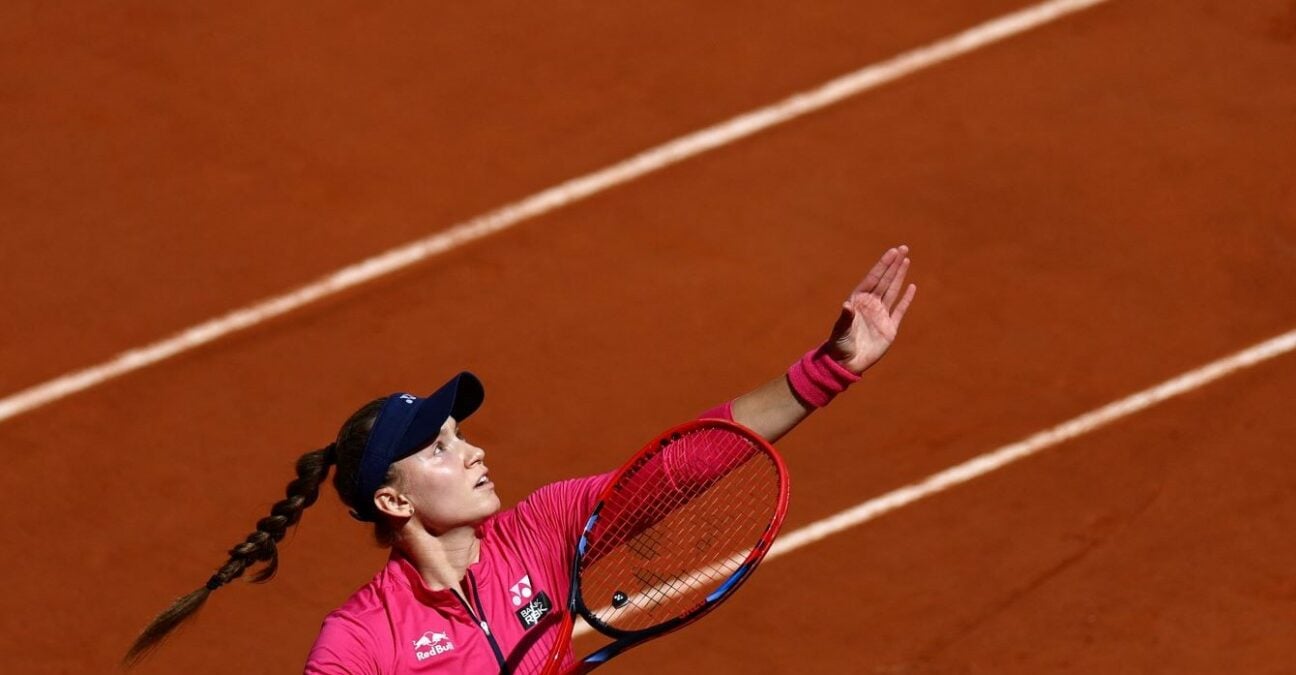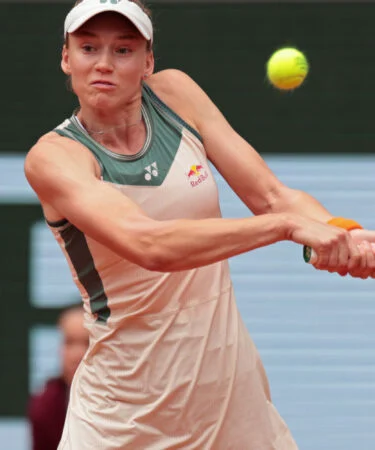“It’s really good for the game” – Rome champion Rybakina a fan of new on-court coaching rule
While its critics say it detracts from the tactical side of the game, the world No. 4 sees the positive side of the new on-court coaching rules
 Rybakina at Roland-Garros, 2023 AI/Reuters/Panoramic
Rybakina at Roland-Garros, 2023 AI/Reuters/Panoramic
This season has witnessed the first full year of both the WTA and ATP implementing on-court coaching, having rolled out trial periods of the rule last season.
The introduction of the rule was controversial, and drew some fierce criticism from those within tennis who believed it would detract from one of the sport’s greatest assets – the gladiatorial nature of the game.
The purists will point to the fact that, once out on court, it is up to the player and no-one else to problem-solve and get the measure of their opponent.
However, since the rule has been adopted full-time this season, it has had a relatively muted response and done little to fundamentally alter the nature of tennis.
Rybakina relishing rule-change at Roland-Garros
One player who is enjoying the legitimacy of on-court coaching this year is Elena Rybakina.
Following her straight sets second-round win over Czech Noskova, the Kazakh made it clear that the rule change has greatly helped propel her to having one of the best seasons on the WTA this year.
“Yeah, I always thought that coaching is actually good. It helps a lot”, the Wimbledon champion said in her post-match press conference.
“Of course, I use it as much as I can to get information from the coach, and sometimes I also like to focus on myself, and I’m not aware of what is going on around. So I think it’s great.”
Rybakina also believes that, not only is the rule helping her personally, but that it enhances the sport as a spectacle in general.
“Yeah, we used to have coaching also when they would come on the court, and now it’s a bit different. But overall, I think it’s really good for the game and it’s helping a lot.”
The rule was essentially brought as a means of circumventing controversy over the arbitrary nature of what is allowed to be said by a player’s coaching team.
For example, coaches have always shouted words of encouragement from the box, but it was becoming increasingly difficult to determine what was encouragement and what was deemed tactical coaching.
The on-court coaching rule has put an end to those discussions, which has resulted in fewer controversies of this nature.
As Rybakina sees it, “it’s really good for the game”.
















